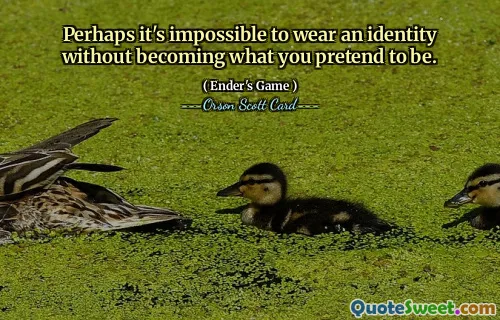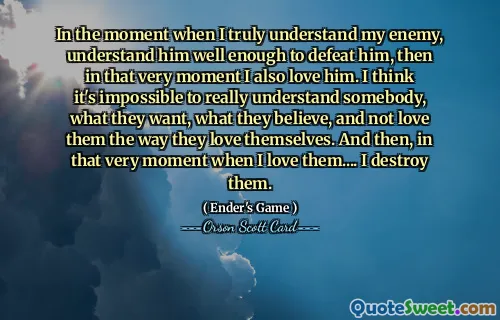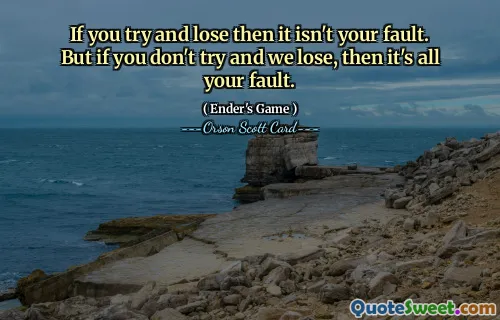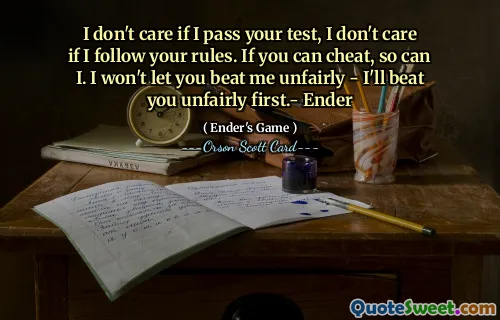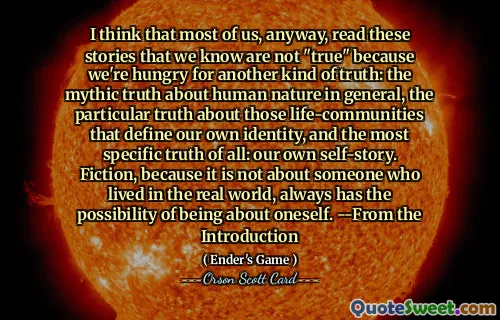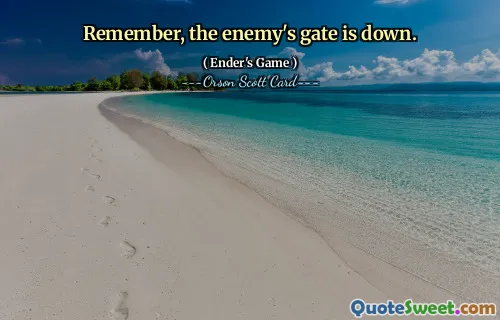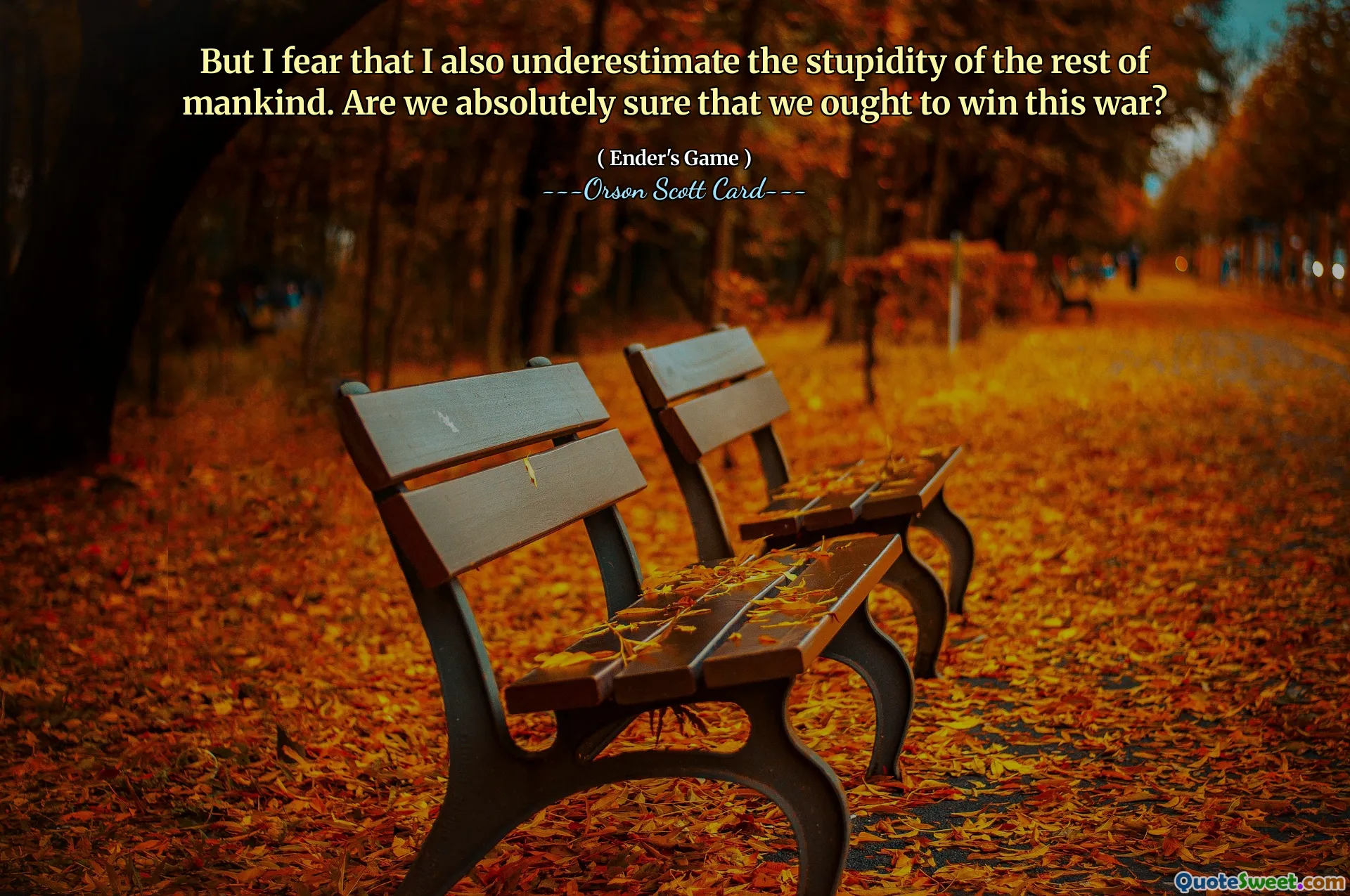
But I fear that I also underestimate the stupidity of the rest of mankind. Are we absolutely sure that we ought to win this war?
In "Ender's Game" by Orson Scott Card, the protagonist grapples with the moral complexities of warfare and the intelligence of humanity. The quote expresses a profound concern about the nature of people, suggesting that while he may overestimate himself, he risks also underestimating the collective ignorance of others. This highlights a conflict between individual insight and societal understanding, emphasizing the unpredictability of human behavior in times of conflict.
The question posed about whether they should indeed win the war reflects a deeper philosophical inquiry regarding the justification of violence and the consequences of victory. It suggests a moment of reflection on the ethics of war and the implications that arise from defeating an enemy, raising doubts about the true cost of such victories on human morality and the future of mankind.
